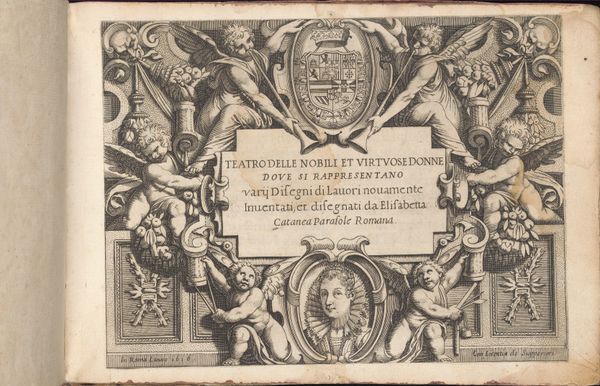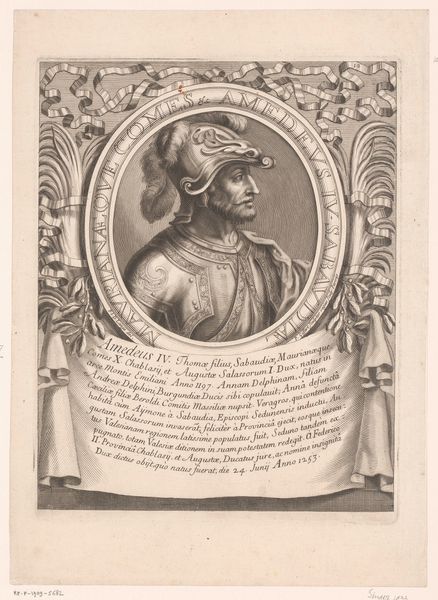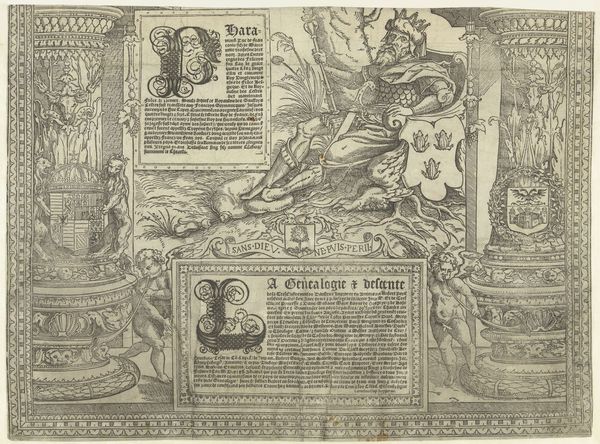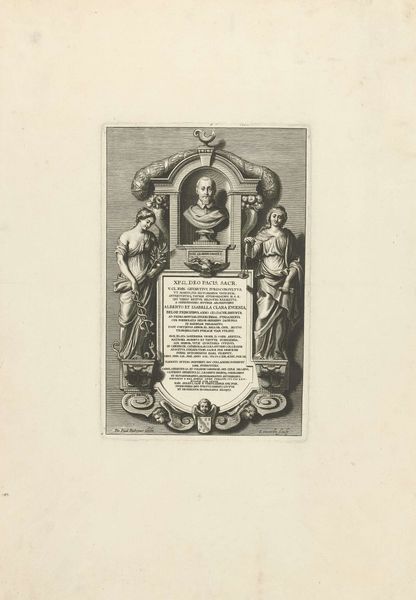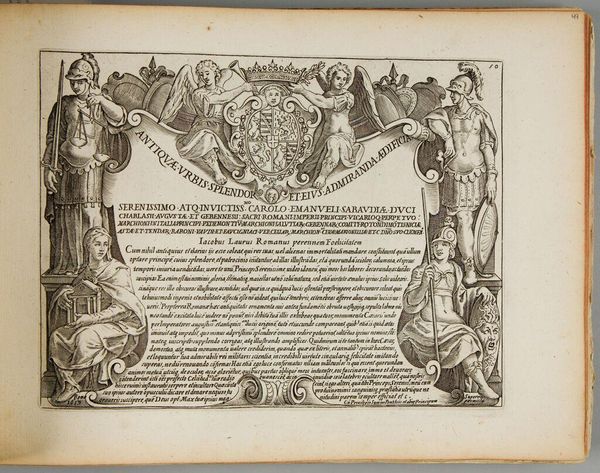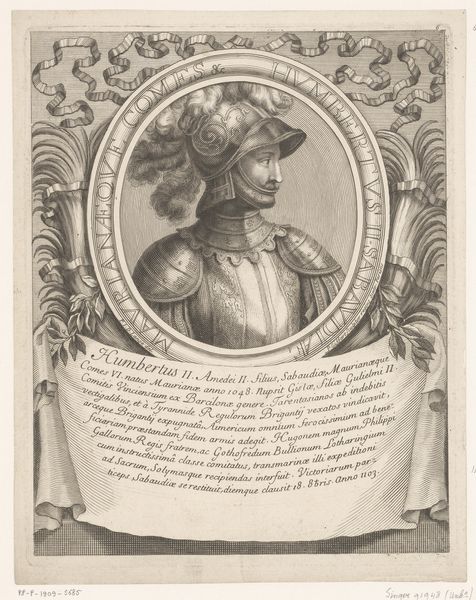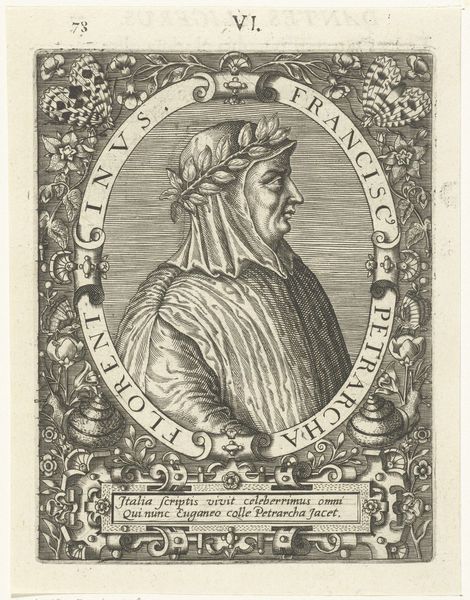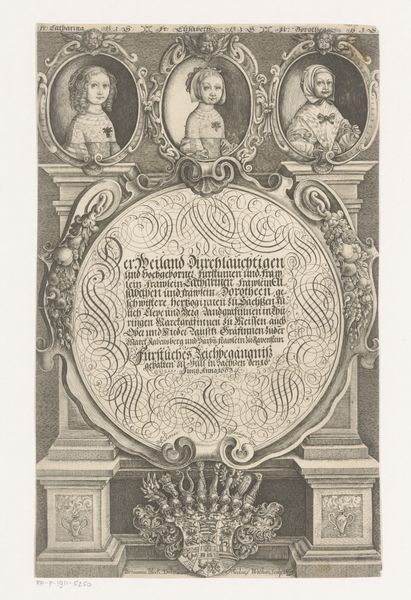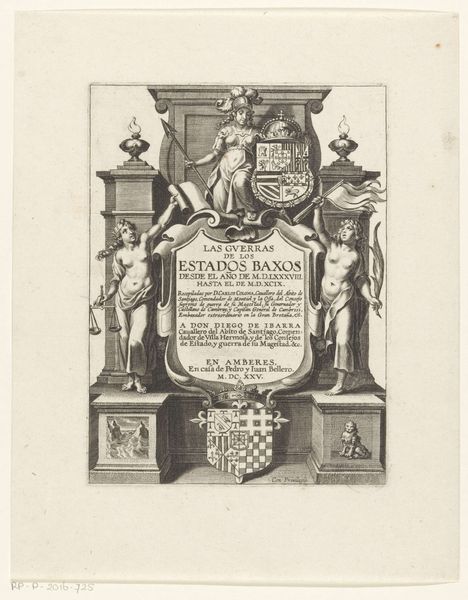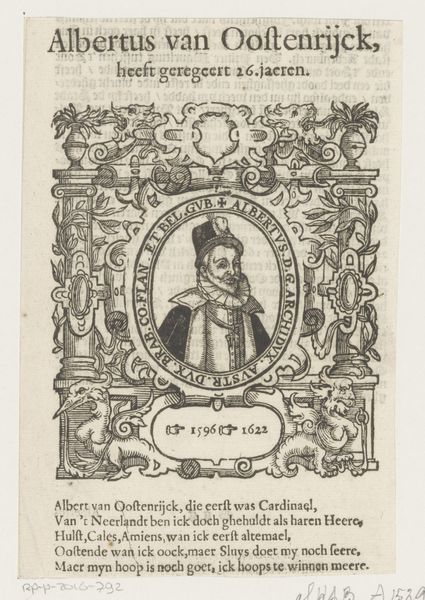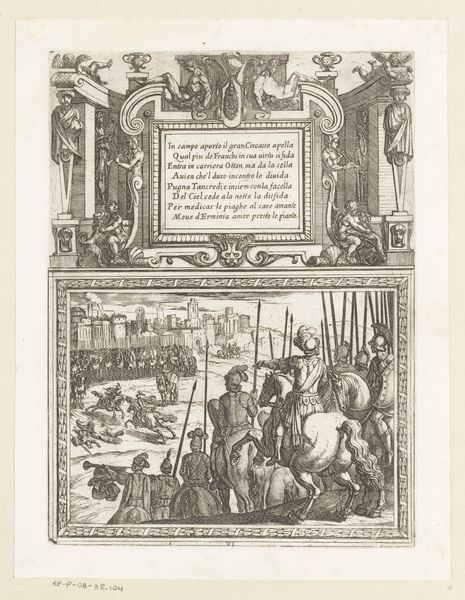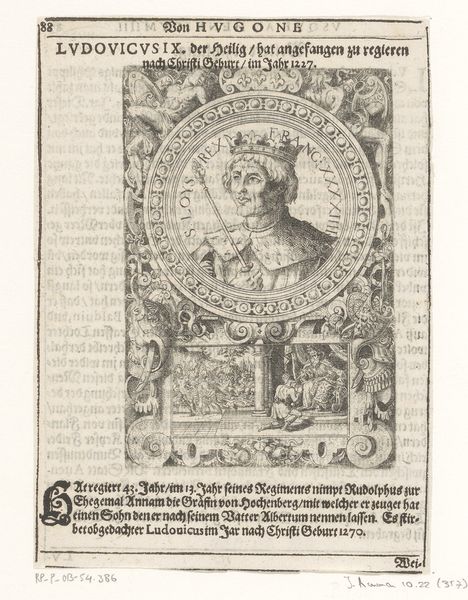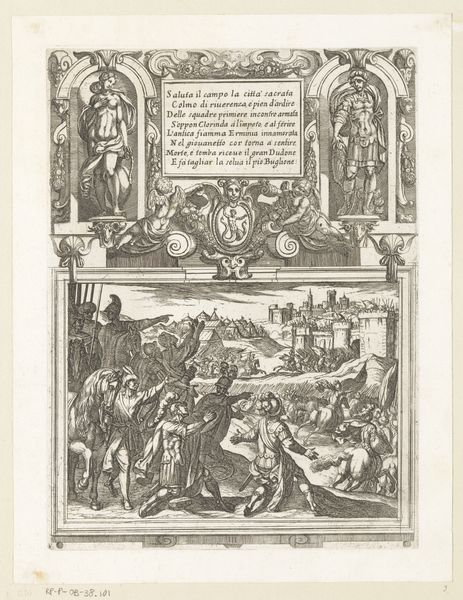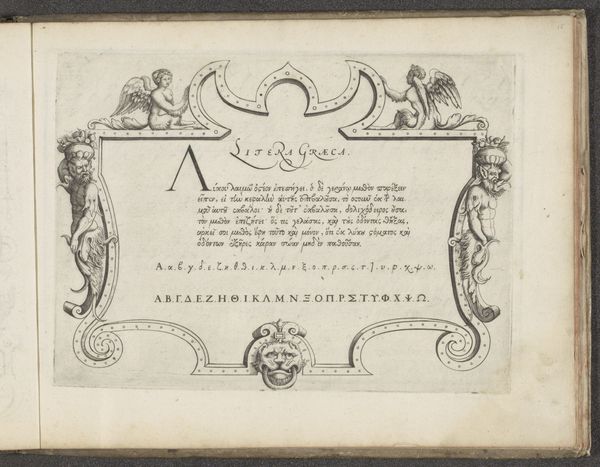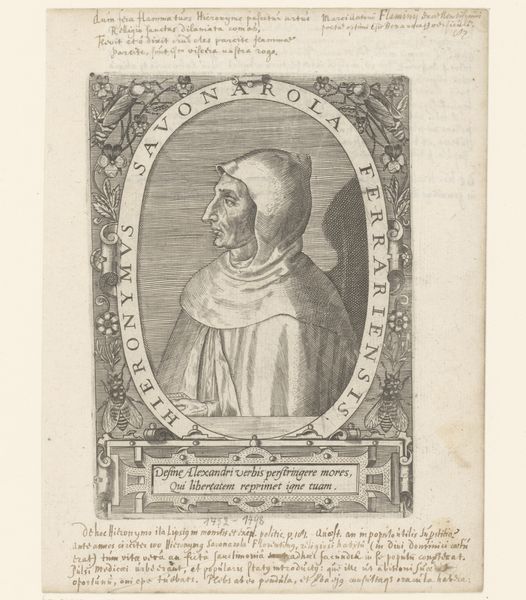
print, engraving
#
portrait
# print
#
11_renaissance
#
history-painting
#
engraving
Dimensions: height 379 mm, width 418 mm
Copyright: Rijks Museum: Open Domain
This print, made by Andrea Andreani around 1600, is an example of woodcut engraving, a process that was highly skilled and labor-intensive. Andreani has masterfully translated the tones and textures of a drawing into a series of precisely carved lines. This work is a ‘titelprent,’ or title page, featuring a portrait of the artist Andrea Mantegna. The print serves as a dedication to a powerful patron, Vincenzo Gonzaga, Duke of Mantua, as you can see from the inscription. The columns suggest a classical monument, reminding us of Mantegna’s own fascination with ancient Rome. Woodcut, unlike other printmaking techniques, requires the artist to cut away the negative space, leaving the design raised. This demands patience, precision, and a deep understanding of the material properties of wood. Andreani has not only showcased his technical skills but also highlighted the social and economic context of art production at the time, reminding us of the vital role that patrons played in supporting artists and shaping artistic output.
Comments
No comments
Be the first to comment and join the conversation on the ultimate creative platform.
